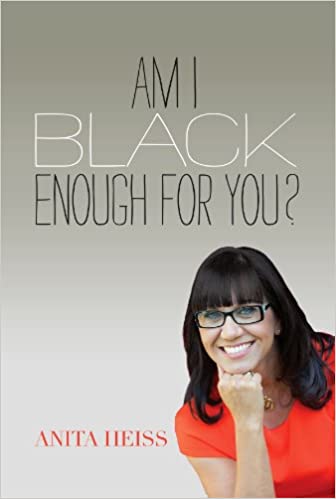Anita Heiss
Today it was announced on BBC World News that the Australian PM Morrisson criticised Cricket Australia for dropping “Australia Day” from its matches played on the National Holiday. Australia Day is celebrated on 26 January, the anniversary of Britain’s First Fleet arriving in Sydney in 1788. According to the BBC, for years now, a “change the date” campaign led by indigenous Australians has lobbied to move the national day. The Australian government has maintained its support for the holiday.
This controversy reminded me of two excellent books by the noted writer, Anita Heiss. She wears many hats as an academic, a writer and an activist. But her memoir, Am I Black Enough for You, is a deeply moving account of growing up as the daughter of an Aboriginal mother and an Austrian father. But she did not grow up on any settlement. Instead she spent her childhood in a suburb of Sydney attending a Catholic school. It was written many years ago but is an excellent introduction to the inherent racism that exists in Australian society. It is unpleasant and violent and unnecessary. This memoir documents the growing consciousness of Anita Heiss as an activist and to ultimately identify herself as an aboriginal too despite being “too fair-skinned”.
A few years later, she compiled an extraordinary anthology called Growing Up Aboriginal. It consists of nearly fifty contributions from a wide variety of people. It is an extraordinary collection of essays recounting their diverse experiences of growing up on settlements, the injustices that they have faced or even speaking about the stolen generation — for many it was hard as it was probably the first time that they were speaking publicly about it. It is a hard-hitting set of essays that are stomach churning at times. It is impossible to comprehend the injustice meted out to the aboriginals by the settlers. Perhaps to colonize a new land, such harsh and violent attitudes were played out regularly but to have them exist in this manner and form nearly three centuries later is despicable.
Contributors include: Tony Birch, Deborah Cheetham, Adam Goodes, Terri Janke, Patrick Johnson, Ambelin Kwaymullina, Jack Latimore, Celeste Liddle, Amy McQuire, Kerry Reed-Gilbert, Miranda Tapsell, Jared Thomas, Aileen Walsh, Alexis West, Tara June Winch, and many, many more. It is an essential primer to understand the complexities of Australian society today. It is an unforgettable book.

One of the contributors to this splendid volume is opera singer, Deborah Cheetham. She is a proud Yorta Yorta woman and the Artistic Director of Australia’s national Indigenous opera company Short Black Opera Company, She was one of the children who was taken away by the state authorities from her biological parents and put in foster care. She was taken from her mother when she was three weeks old by the State and raised by a white baptist family. She is a member of the Stolen Generation. According to Wikipedia, “The Stolen Generations (also known as Stolen Children) were the children of Australian Aboriginal and Torres Strait Islander descent who were removed from their families by the Australian federal and state government agencies and church missions, under acts of their respective parliaments. The removals of those referred to as “half-caste” children were conducted in the period between approximately 1905 and 1967, although in some places mixed-race children were still being taken into the 1970s.”
I was fortunate to hear her narrate this sad fact about her childhood during her performance at the then Australian High Commissioner to India’s , H. E. Harinder Sidhu ( 30 March 2019). Deborah Cheetham had been invited to India to mark the closing ceremony of the magnificent Australia Fest in India. It had been a cultural festival organised throughout India by the Australian government in collaboration with local partners but mostly showcasing Australian performers. Cheetham recounts how she was fascainated by Church music and listening to the hymns being sung as her “parents” were regular churchgoers. It was there that her love for music was kindled. Later when she heard Joan Sutherland perform at the Sydney Opera House, she was mesmerised and dreamed of becoming an opera singer too. She did. Against all odds. (Follow this link to hear her sing in Delhi.)
Both the books — Am I Black Enough for You and Growing Up Aboriginal — are unforgettable. They are powerful, very disturbing reads but essential. I read these books some time ago but I have not forgotten them. It seeps into one’s sensibility and forever affects the way Australian society, culture and literature are viewed. It is with a sensitive understanding to the complex make up. Hence, news items such as about Australia Day make sense to an outsider.
Please read these books and discover for yourselves the eerie parallels these stories have with other regions/communities in the world.
21 Jan 2021
